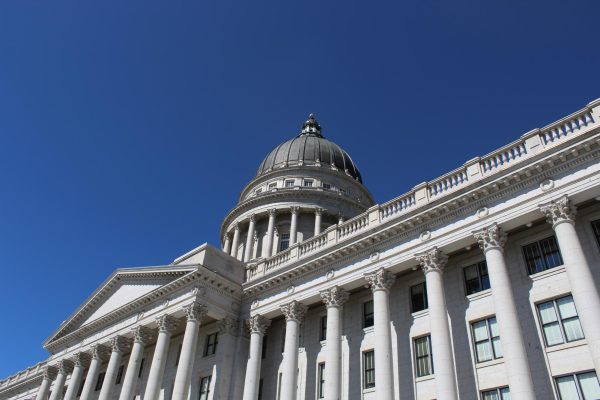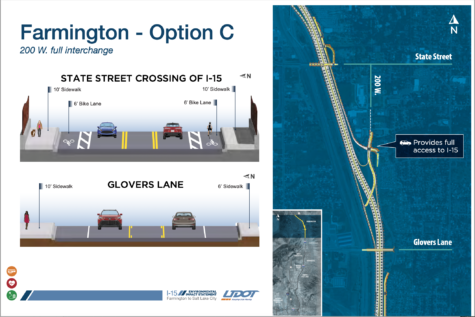Transgender youth are being mistreated across the country
Since 2020, state legislatures across the United States have taken aim at transgender youth, passing law after law to limit gender-affirming resources and care necessary to their transition.
In 2020, 16 states debated banning gender-affirming care and in both 2021 and 2022, 11 states actually introduced laws.
Arkansas was the first state to pass a bill limiting transgender medical treatment in 2021, and other states have rushed to follow suit.
As of April 2023, 11 states have passed laws or policies restricting gender affirming care: Alabama, Arkansas, Arizona, Florida, Georgia, Iowa, Kentucky, Mississippi, South Dakota, Tennessee and Utah.
Psychologists and advocates for the transgender community worry about the effect of these laws on the mental health of transgender youth. They are stepping up efforts to prevent suicide in this community.
What is gender-affirming healthcare?
Gender-affirming care includes psychological, social, behavioral and physical therapies and care, according to the World Health Organization. One of the physical aspects of gender-affirming care includes surgery. Transgender healthcare diagnoses body dysmorphia along with sex reassignment therapies.
These rights to complete gender modifications have been taken from minors in Utah.
On Jan. 28, the Transgender Medical Treatments and Procedure Amendments were signed into Utah law, banning minors from receiving any form of gender-affirming surgeries. In other words, this bill makes gender-affirming surgeries illegal for transgender youth in the state of Utah.
This bill also bars all minors in the state of Utah from undergoing hormonal treatment unless treatment began prior to the bill.
“Legislators are getting between patients and parents and doctors, and saying that they know best,” Julia Oderda, principal at VCBO Architecture in Utah, said.
The majority of targeted transgender people in the United States are those who are under the legal adult age of 18.
How the Utah trans community is affected
When Utah’s law was passed, it became the state’s first anti-transgender law of the year, affecting the lives of young transgender community members all across the state.
Youth across the state have been distressed by the lack of emotional support and allyship. Many other community members are worried about the well-being of transgender youth, especially Marisa McPeck-Stringham, a Davis County mental health therapist.
McPeck-Stringham worries about the mental state of her queer clients because of the emotions many have shared with her on the matter. She said from talking to her clients and other therapists with whom she works, there are a number of teens who have expressed thoughts of suicide and self harm due to these changing laws.
Transgender youth have expressed emotions of betrayal in the wake of this bill, expressing sentiments such as, “If our governor hates us, why do we want to live here, or anywhere?”
McPeck-Stringham and her colleagues want nothing but the best for their clients, so they formulated plans to help their youth cope with feelings of suicidal ideation. These plans will help teens know who to call and what steps to take when harmful thoughts occur.
Utah is not the only state enforcing such laws
In Oklahoma, anyone under the age of 26 who receives gender-affirming care within the state would be charged with a felony. Similarly, in Virginia, a proposed bill would ban anyone under the age of 21 from receiving gender-affirming care.
South Carolina has a bill that targets 21-year-olds. Sen. Mark J. Peake, who signed the bill, said he is restricting gender-affirming surgeries because “juvenile brains really are not developed as a teen.”
Gender-affirming surgeries are non-reversible. Hormone therapy, however, can be reversible depending on the treatment and its timing. Sen. Mark J. Peake believes waiting until individuals are 21 will allow them to make a more thought-out decision about their transitions.
Stephen Rosenthal, the medical director of the University of California, San Francisco’s Child and Adolescent Gender Center, explains puberty blocking medication, a type of hormone therapy.
“They prevent adolescents from developing gender characteristics that might be hard to later reverse, like full breast development. But they also give people time to decide whether to pursue interventions like hormone therapy,” Rosenthal said.
Rosenthal said there are also side effects that come with puberty blockers — potential fertility effects and loss of bone density — but these effects have been proven to be reversed in recent studies, Rosenthal said.
Medical malpractice enforced
Currently, there are 22 states that have passed or are considering passing laws banning or restricting gender-affirming surgeries. These states are putting doctors and physicians at risk of malpractice.
According to the Movement Advancement Project, “Some of these bills would criminalize and imprison doctors who provide this medical care to transgender youth.” In some cases parents or guardians that support their transgender children can be prosecuted for “abuse or neglect of a child.”
Those that are against these restrictive bills are saying that transgender medical treatment restrictions “are an infringement on the rights of families to make their own health decisions.”
A doctor’s note
Dr. Ellie Brownstein, pediatrician and president of the Utah chapter of the American Academy of Pediatrics, shared similar worries concerning transgender youth. She voices concern that gender-diverse kids aren’t receiving the attention they need.
“We’re now saying that we’re not allowed to help them, that we’re not allowed to use the evidence-based therapies that are available to help kids feel comfortable with who they are and in their own skin,” Brownstein said.
According to Brownstein, over 50% of transgender minors have had suicidal thoughts or have attempted suicide. Brownstein said that without being able to help these kids, their mental health is being put in a dark place.
More than anything, transgender youth seek support and validation from those who are around them.
“The first thing that any patient needs is acceptance of who they are — you know, feeling love, acceptance from family, from friends, and that you, as a person, are an acceptable person is vital to all of us,” Brownstein said. “And that, we can all still do.”
What can be done?
Oderda said advocates are working to prevent suicide, but they can’t do it alone.
“There’s all sorts of good resources out there on suicide prevention in the trans community, specifically in youth,” Oderda said.
But it is also important for the larger community to support transgender people by being supportive and affirming. That, she said, is “the best way that you can reduce the suicide rate for trans kids.”
If you are suicidal or experiencing suicidal thoughts, reach out to the Suicide & Crisis Lifeline at 988 which is available 24/7.












Hal Kirven • Apr 20, 2023 at 5:51 am
Good grief! I hardly consider protecting the rights .. and LIFE.. of a preteen from irreversible medical procedures until he/she “is of legal age” is mistreating them… Au contraire…parents… any adult actually.. who tries to influence a child to such a drastic decision is mistreating the minor child… and should be held accountable…
nicole Morton • Apr 19, 2023 at 7:51 pm
Ok, I’m gonna throw out a few things on this subject, and all I ask, is for anyone reading, to consider what I say, and make a truthfully, honest assessment before forming an opinion. Nothing I am going to say, is meant to offend or disrespect ANYONE, I am just sharing my personal observations and think it’s fair to share.
Transgender dysphoria is (until recently) an incredibly RARE condition, and is prominent early on. Not a phase, not a questionable tendency, a persistent, relentless protest, and consistency, of NOT identifying with gender specific tendencies. I feel, that if the number of current adolescents claiming to be affected by this condition, were so, then it would have sparked attention, and concern, much earlier. With that in mind, WHY does it seem no one is concerned about this recent inflation of this condition? It’s NOT a LIFESTYLE CHOICE or PREFRRNCE.
PARENTS haven’t been protesting or formed an activist group in previous years to support and protect their child from discrimination, or to promote awareness to help educate the community.
IM qurious as to the research and statistics behind these medical treatments and procedures. How successful have they been,? Is any of it irrivesabe? Is early intervention more affectve, early on, during, or after puberty?! All I know is i don’t there there is one person who DOESN’T remember going through puberty, and what a JOY that was!!! (And there no FIX for that, and it’s just part of being human, in whatever form your in.)
I think of the situation as a parent. Of course, we want what’s best for our children, and to support them. But ARE WE? Giving them WHAT THEY WANT, isn’t always BEST,or even in their best interest. Are they truly suffering, physically, in pain, from this, is it more psychological, and WHERE is the pain coming FROM? Are WE parents, doing then a discervice by being YES MEN, somehow unaware that our children have become confused or mislead by social media and new technologies, that, in all fairness, we have never experienced before?!
People seem to always want someone to BLAME for things. I don’t feel it’s fair to blame ANYONE, when it’s something we have never experienced before.
So, if I could give one suggestion, it’s to pause, unplug, and really THINK about the WHOLE situation, before making any major decisions. For the first time, I have to say the GOVERNMENT did the RIGHT Vote, in the best interest of our children.
As far as any therapist, or psychologist, fully supporting medical treatment for these kids, well, I’d be concerned with their mental health, and morality, as well as intentions. Seeing as the bill would support THEIR PRACTICE. (Just saying) Also, not for nothing, but if parents and legislature are going to Grant ADOLESCENCE to make medical decisions regarding gender change, I’m going to have to DEMAND ALL AGE RESTRICTIONS on EVERYTHING ELSE!
AND, who knows, maybe if kids can smoke and drink alcohol, they will lower their inabtions and deccide they actually want to be ANYTHING BUT LIKE US!
Gary Simpson • Apr 18, 2023 at 2:25 pm
This story is a lie. The bill Is NOT to deny the gender confused from healthcare but to deny MINORS from being mutilated by corrupt drs and politicians to perform sex change operations on minors who doesn’t have the maturity to make a life changing decision like that. There is a reason why transgenders have such a high rate of harming themselves and it’s not from being denied anything.